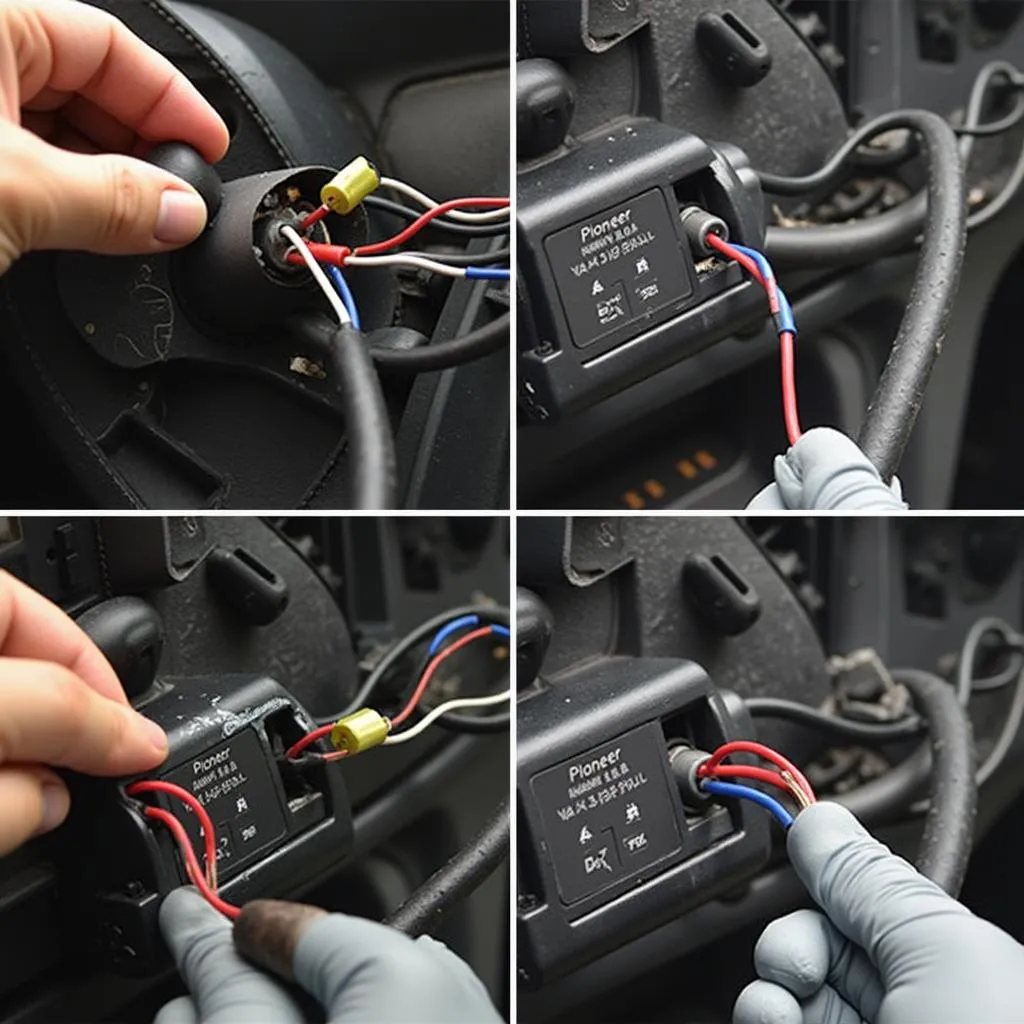You just bought a new battery, expecting your car to roar back to life, but it’s still stubbornly refusing to start. Frustrating, right? Don’t worry, you’re not alone. This is a surprisingly common issue, and it often means the problem isn’t with the battery itself. This article will guide you through the most common culprits and help you get back on the road.
Why Your Car Won’t Start With a New Battery
While a dead battery is the most frequent reason for a no-start, a brand new battery not solving the issue indicates something else is at play. This can range from simple fixes like corroded terminals to more complex issues like a faulty starter or alternator. Let’s break down the possibilities.
Checking the Obvious: Connections and Cables
The first thing to check is the battery connections. Make sure the positive and negative terminals are securely attached and free of corrosion. Even a small amount of corrosion can disrupt the electrical flow. A simple wire brush can clean them up. Also, inspect the battery cables themselves for any damage or fraying.
Beyond the Battery: The Starter
The starter motor is responsible for cranking the engine. If it’s malfunctioning, even a brand new battery won’t help. A clicking sound when you turn the key is a classic sign of a bad starter. A more definitive test requires a multimeter to check the voltage at the starter solenoid.
“A common misconception is that a new battery guarantees a start. Often, the problem lies elsewhere in the starting system, like the starter itself,” says Robert Johnson, Senior Automotive Diagnostic Technician at Johnson’s Auto Repair.
The Alternator: Keeping the Charge
The alternator’s job is to recharge the battery while the engine is running. A faulty alternator can drain a new battery surprisingly quickly, leading to a no-start situation. A simple test involves starting the car (if possible) and disconnecting the negative battery terminal. If the car stalls, the alternator likely isn’t charging properly.
Fuel System Issues: Not Always Electrical
Sometimes, the problem isn’t electrical at all. A lack of fuel can also prevent the car from starting. Check your fuel gauge. If it’s low, adding fuel might solve the problem. If you have fuel, a clogged fuel filter or a faulty fuel pump could be the culprit.
“Don’t overlook the fuel system. While electrical issues are common, a fuel delivery problem can mimic a dead battery,” advises Sarah Chen, Lead Electrical Systems Engineer at Chen Automotive Solutions.
Troubleshooting Your No-Start: A Step-by-Step Guide
- Check Battery Connections: Clean and tighten the battery terminals.
- Inspect Cables: Look for damage or fraying on the battery cables.
- Listen for the Starter: A clicking sound often indicates a bad starter.
- Test the Alternator: Start the car (if possible) and disconnect the negative battery terminal. If the car stalls, the alternator likely isn’t charging.
- Check Fuel Level: Ensure you have enough fuel.
- Consider the Fuel System: If you have fuel, a clogged fuel filter or faulty fuel pump could be the issue.
Bought New Battery Car Still Won’t Start: Conclusion
Even with a new battery, a car can refuse to start due to various reasons, including corroded terminals, a faulty starter, a bad alternator, or even fuel system issues. By systematically checking these components, you can pinpoint the problem and get your car running again. If you’re still stuck, don’t hesitate to seek professional help from a qualified automotive technician. “Remember, a systematic approach is key to diagnosing car troubles. Don’t jump to conclusions, and always prioritize safety,” adds Robert Johnson.
FAQ
- Can a brand new battery be faulty? Yes, although rare, a new battery can be defective.
- Could the problem be the ignition switch? A faulty ignition switch can also prevent the car from starting.
- What if I hear a grinding noise when I try to start? A grinding noise could indicate a problem with the starter motor.
- Should I try jump-starting the car? If the battery connections are good and you suspect a drained battery (despite it being new), jump-starting might help identify the issue. However, if the problem is with the starter or alternator, jump-starting won’t resolve it.
- How long should a car battery last? Typically, a car battery lasts between 3 and 5 years.
- What should I do if I replaced the battery and the car still won’t start? If you’ve tried the basic troubleshooting steps and the car still won’t start, it’s best to consult a qualified mechanic.
- Can extreme temperatures affect a car battery? Yes, both extreme heat and cold can affect battery performance.

